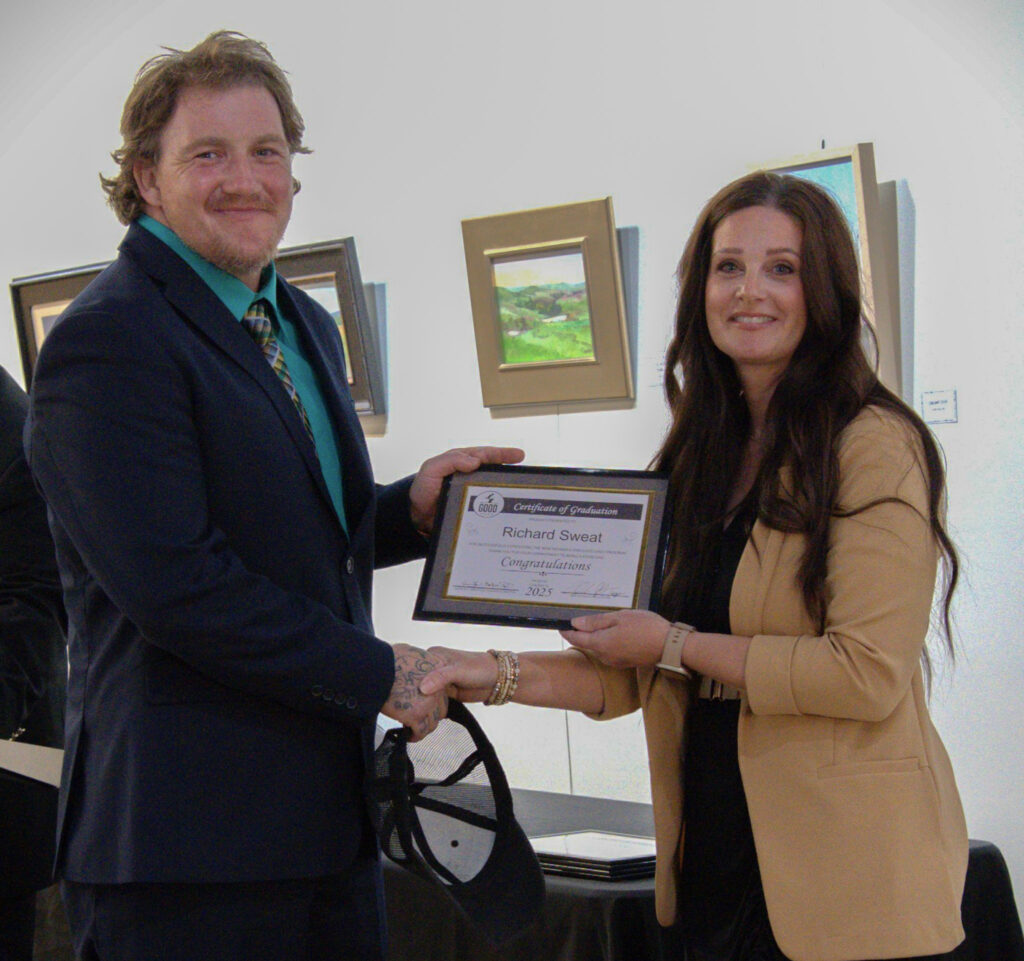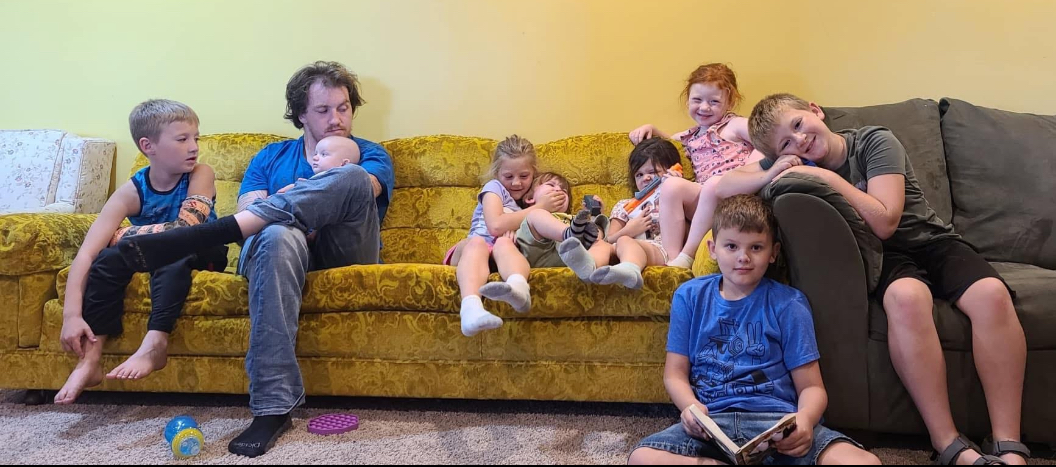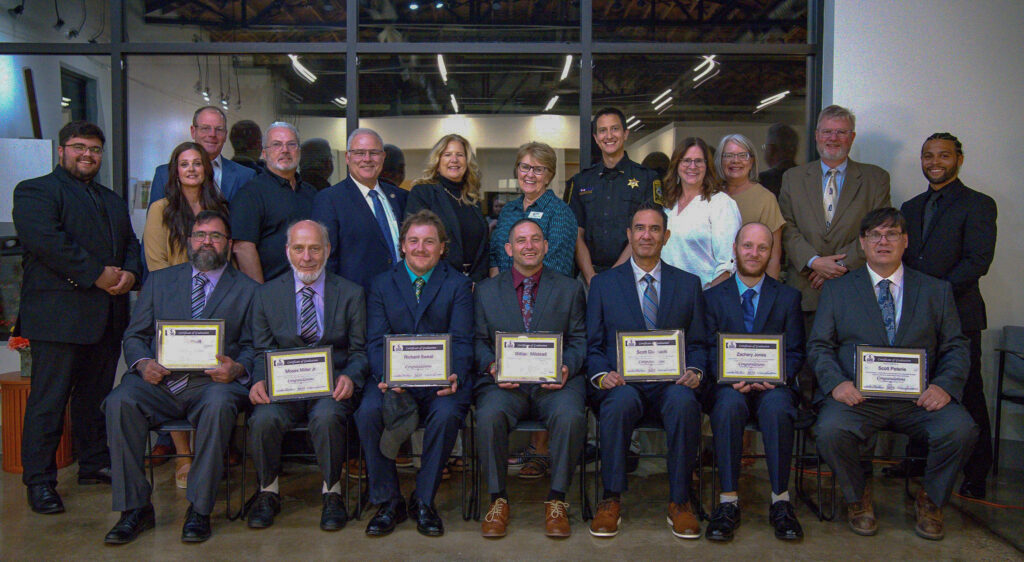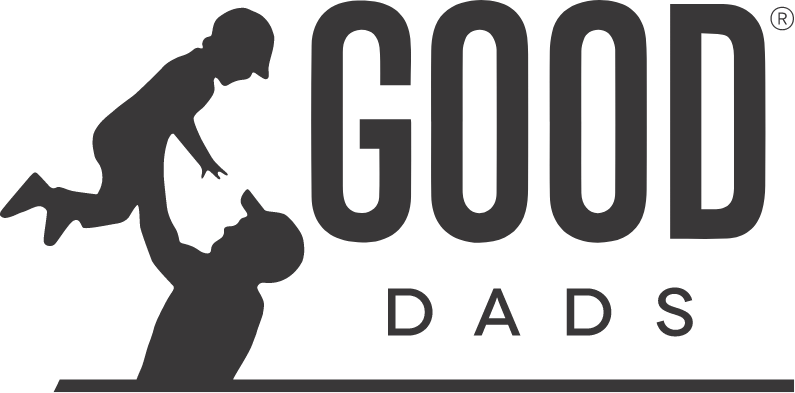
Ricky Sweat
One of Richard “Ricky” Sweat’s biggest goals is to be the father he never had growing up.
“Fatherhood is being able to support your kids and your family through thick and thin, be the cornerstone, people know you can help them whenever you need your help,” he said.
Ricky, a New Pathways for Good Dads graduate, resides in the small town of Coffey, Missouri with his wife and nine children.
Ricky said that his childhood “wasn’t the best,” claiming the only good thing he inherited from family was his work ethic. At the young age of 15, he served as the only source of income for a family of four.
“It felt like I was the parent at 15 years old,” he said.
Ricky says he only has a few memories of his biological dad, who was abusive to his mother. Ricky was raised largely by his grandparents while his mother was in and out of jail—and his stepdad was in prison throughout his childhood.
“I inherited my bad temper from Grandpa,” he admitted.
For most of his adult life, Ricky’s days began early and stretched late into the evening. His blue-collar job has him traveling to do cleanup after storms, meaning time spent away from family. This often high-stress career, combined with what he describes as anger and communication problems, eventually led Ricky to attend anger management classes, and later New Pathways for Good Dads classes.
Before Good Dads, Ricky’s life lobbed obstacle after obstacle at him, including separation from his wife and children. He remembers it as a very difficult time.
He pointed to the Speaker Listener Technique as one of his favorites in the program. Participants in the New Pathways program learn about this technique in both Good Dads 2.0 and Within My Reach: The purpose of the technique is to slow a conflict or conversation down by taking turns being the Speaker, while the Listener summarizes what they heard in their own words.
“Most of my problems stem from (poor) communication,” Ricky admitted, so this technique was a pivotal one for him. “Sit and listen, don’t accuse, try to listen to them and say what they tell you. It makes communicating easier.”
While Ricky was working on an open case with the Division of Family Services, a board member of the ABBA House in Chillicothe, MO, referred him to the Good Dads program.
At first, he was hesitant.
“I wasn’t sure how I would feel, if it was going to be something I’d be interested in, or if it was going to help with what was going on in my life,” he said.
But as Ricky started attending class and got to know other dads in his group, he became more invested.
“I slowly started getting more and more into it,” he said. “I was able to see from everybody’s point of view on the subjects—and give my own point of view.”

Good Dads 2.0 has a module all about anger. And since Ricky had previously taken some anger management courses, he was able to both learn something new and share his previously obtained knowledge with the other dads.
Ricky says there will be some sections of the class that don’t necessarily apply to your life. For example, if you have teenage sons, you might not totally connect to a story about a dad raising his five-year-old daughter. However, just because you can’t relate to it doesn’t mean that other dads in the class won’t, according to Ricky. He said listening and providing feedback helps, even if it’s not completely applicable to your own experience.
“I felt a lot of (New Pathways classes) helped,” he said, describing himself as an “active participant” throughout both Good Dads 2.0 and Within My Reach.
“(I) voiced how I felt, how I saw things and whether or not I agreed,” he said.
Dads just starting with New Pathways classes look for a strong support system, and many fathers find that support within one another as well as with facilitators. Ricky says facilitators like J.B. Togun (who also serves on the Good Dads Chillicothe advisory board), supported him, even when he felt like giving up on classes.
“(He) helped me when I didn’t feel like I could keep going,” he said. “(He) sat down and talked with me, let me cry and helped me through it.”
Ricky is one of six fathers recognized at a formal Good Dads graduation ceremony on October 6, 2025. To be eligible to graduate, participants must complete both Good Dads classes, attain stable employment if possible, and contribute to the wellbeing of their families to the extent that they are able. It’s a huge accomplishment to graduate from the program. It takes persistence and hard work.
“(Graduating) felt like something I hadn’t had,” Ricky said. While he graduated from high school and the military, neither were moments where his whole family got to witness the ceremony.
But this time at Ricky’s Good Dads graduation, his wife and children were there to celebrate with him. “(Graduating) felt like an accomplishment.”

Post-graduation, Ricky is back together with his wife and children. He wants to work on better communication between him and his family, incorporating lessons he learned from the Good Dads program.
Ricky sees a bright future ahead, picturing a vision of his wife, children and “a bunch of grandkids running around the yard.” He said that, while there will always be struggles in the future, working through issues step by step is the way to go.
For fathers in a similar situation to him, Ricky said that being an active listener and problem-solving collaboratively are what helped him the most.
“Listen in the class, listen to facilitators, listen to different solutions and go for the one that best suits you,” he said. “Work through the process.”
About the Author
Dora Gilreath is the communications assistant at Good Dads. She joined the team in 2024 and has a Bachelor’s degree in journalism and a minor in creative writing at Missouri State University. She loves reading, writing and anything related to theater.

